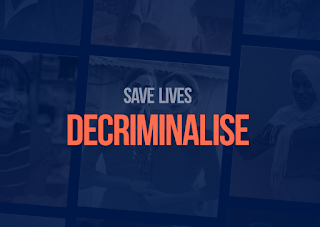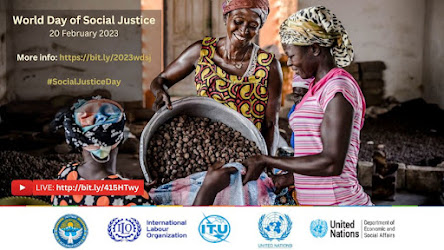FORUM: 'Partnerships for Wildlife Conservation'. World Wildlife Day 2023.
The theme ‘Partnerships for Wildlife Conservation’ will thus provide the opportunity to highlight the people who are making a difference as well as to celebrate the bridge that CITES has been for these partnerships to form, making a significant contribution to sustainability, wildlife and biodiversity conservation. This year’s theme recognizes that CITES’s successes – indeed almost all successful conservation actions, depend upon cooperation. It is such an important and complex subject that no one government or organization, including the United Nations, can tackle the issue without collaboration and sharing of experience and expertise. So, the theme this year is ‘Partnerships for Wildlife Conservation’.
This year, the theme is “Partnerships for Wildlife Conservation”. The idea of a partnership inevitably means different things to different people. Some will see the most impactful conservation partnerships as taking place at the international level between organizations, while others may see small groups living alongside nature as having the most beneficial partnership for wildlife conservation.
In order to capture as many different partnerships as possible, WWD 2023 will focus on partnerships at three levels: international; regional and national; and local.
‘Partnership stories’, i.e. successful case studies, will be identified for each of these three groupings to illustrate that work needs to be done at all levels in order to safeguard the future of species currently threatened with extinction, and to secure a healthier planet for all.
It will allow to celebrate all conservation efforts, from intergovernmental to local scale. Within this theme, the day wants to generate discussions and awareness on two sub-topics: business & finance; and marine life & oceans.
Indigenous Peoples and Local Communities (IPLC) and Youth representatives will be specifically invited to contribute to the ‘partnership stories’, as two stakeholder groups that CITES has been working towards ensuring meaningful representation.
Follow the conversations with the hashtags: #WWD2023, #3March, #WorldWildlifeDay; #Partnershipsforconservation.
CONCERT: UN Chamber Music Society Concert in Celebration of World Wildlife Day 2023.
On World Wildlife Day, we reflect on our responsibility to protect the magnificent diversity of life on our planet.
And we recognize our abject failure.
Human activities are laying waste to once-thriving forests, jungles, farmland, oceans, rivers, seas, and lakes.
One million species teeter on the brink of extinction, due to habitat destruction, fossil fuel pollution and the worsening climate crisis.
We must end this war on nature.
The good news is that we have the tools, the knowledge, and the solutions.
This year marks the 50th anniversary of the Convention on International Trade in Endangered Species, which has helped protect thousands of plants and animals.
And last year’s agreement on the Kunming-Montreal Global Biodiversity Framework marked an important step towards putting our planet on a path to healing.
As this year’s theme – ‘Partnerships for Wildlife Conservation’ – highlights, we need to work across governments, civil society, and the private sector to turn commitment into action.
And we need much bolder actions now to cut emissions, accelerate renewables, and build climate resilience.
Throughout, we need to place the voices of local communities and indigenous people – our world’s most effective guardians of biodiversity – front and centre.
Today and every day, let us all do our part to preserve natural habitats and build a thriving future for all living beings.
Dear friends, 3rd of March 2023 marks the 50th anniversary of the adoption of the Convention on International Trade in Endangered Species of Wild Fauna and Flora. I'm pleased to be celebrating this important milestone with you all. Recently, we have made a great advance in the field of conservation and protection by adopting the Kunming-Montreal Global Biodiversity Framework. This agreement shows a strong sense of solidarity with future generations of humanity, but also towards our environment, our flora and our fauna. It has reignited hope.
The parties pledged, that by 2050, the extinction rate and risk of all species are reduced tenfold. I can only commend the resolve of this commitment, but we should not rest on our laurels now. We must do our utmost to implement it as best we can. For that, we need to resort to our most powerful tool building broad networks and fostering far reaching partnerships. Partnership is the key to rebuilding degraded areas and restoring healthy environments.
It is also crucial in curbing wildlife related crimes to successfully protect biodiversity. Indigenous communities must be included in these partnerships. But if we really want to see change, we must boost conservation and protection funding too. We have to enhance our cooperation with the financial institutions and the private sector. Your views do matter, and we need you to voice your concerns, ideas and proposals.
I'm happy to welcome you as decision shapers, and I count on your help. Thank you.
- Statement from the UNEP Executive Director on World Wildlife Day 2023; March 3rd.
- Statement from the UNDP Administrator on World Wildlife Day 2023; March 3rd.
- Statement from the Convention on Migratory Species (CMS) on World Wildlife Day 2023; March 3rd.
- Statement from the Secretary-General of INTERPOL on World Wildlife Day 2023; March 3rd.
- Statement from the WORLD BANK Global Director for Environment, Natural Resources and Blue Economy (ENB) on World Wildlife Day 2023; March 3rd.
- Statement from the IPBES Executive Secretary on World Wildlife Day 2023; March 3rd.
- Statement from the IUCN Director-General on World Wildlife Day 2023; March 3rd.
- Statement from the ITTO Executive Director on World Wildlife Day 2023; March 3rd.
- Statement from the TRAFFIC Executive Director on World Wildlife Day 2023; March 3rd.
- Statement from the WOAH Director-General on World Wildlife Day 2023; March 3rd.
- Statement from the U.N. Special Envoy for the Oceans on World Wildlife Day 2023; March 3rd.
- Statement from the Director-General of the FAO on World Wildlife Day 2023; March 3rd.
EVENTS: UN World Wildlife Day 2023 - Virtual event.
On 3 March 2023, the CITES Secretariat will collaborate with the United States Fish and Wildlife Service (USFWS) to hold the first WWD event in Washington D.C., the birthplace of CITES. The National Geographic Society has graciously offered its Grosvenor Auditorium as the venue of WWD 2023. Jackson WILD and International Fund for Animal Welfare (IFAW) have once again offered to organize the WWD Film showcase and the youth art competition, respectively, to showcase the power of visual arts that could bring people together to raise awareness and promote discussions among different parts of the world.
The Event organised by the CITES Secretariat and U.S. Fish and Wildlife Service will celebrate World Wildlife Day 2023 and CITES' 50th anniversary. During the ceremony the winner of the WWD2023 design competition will be presented. Huge congratulations to the designer Xavi Reñé for his beautiful work!
On this day; We will mark also the @CITES' 50th birthday.
March 3rd 2023 will be a very special date, as it will also be marking the 50th anniversary of CITES. CITES has stood at the junction of trade and conservation, with Parties to the Convention working with the shared goal of ensuring sustainability of endangered species. CITES has sought to build partnerships and reconcile differences between the groups that are guided and governed by its regulations. At national and local levels, these partnerships have been essential in every country across the globe to focus on the conservation of species and ecosystems.
World Wildlife Day 2023 Event programme.
Celebrate with us by joining the livestream .





















